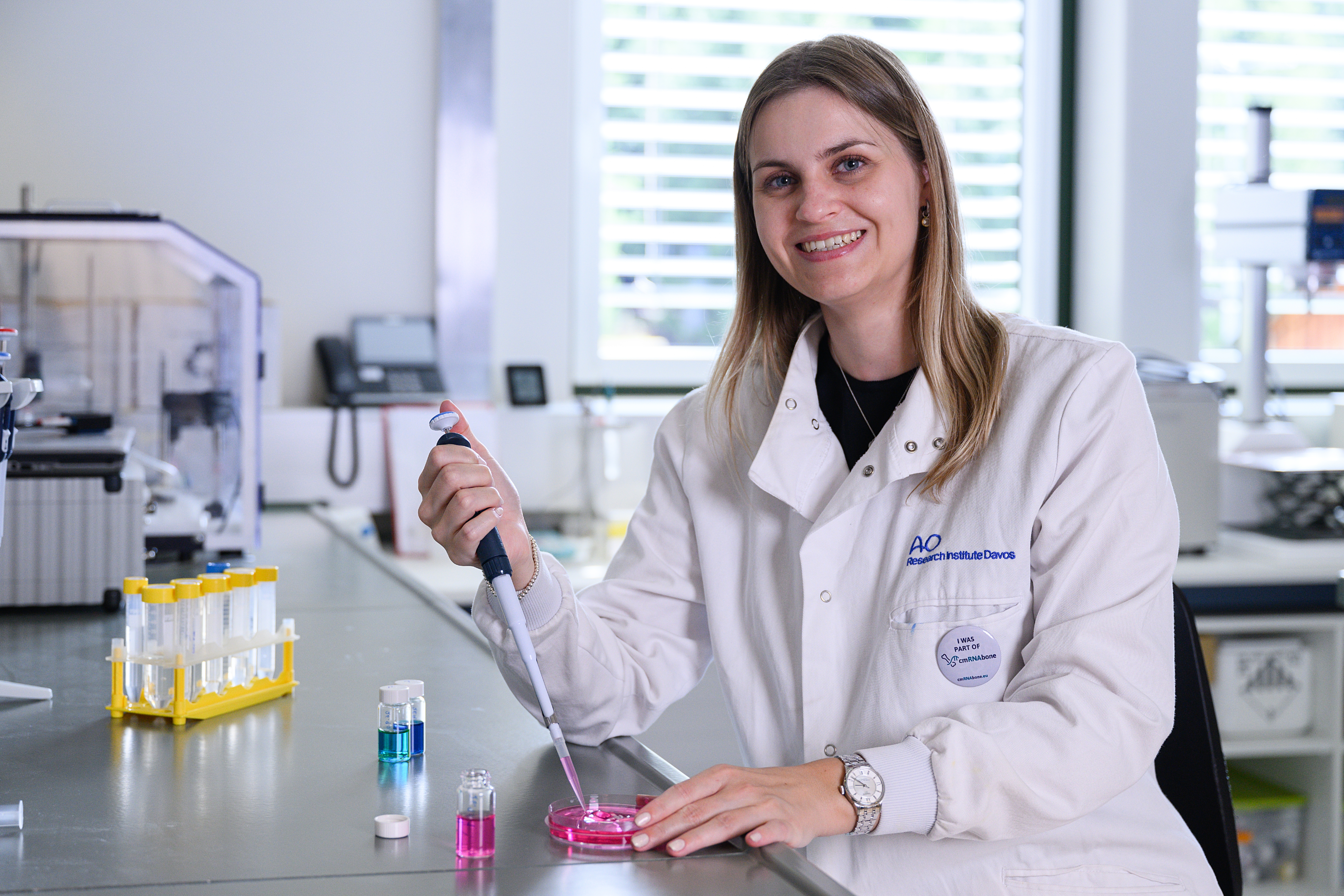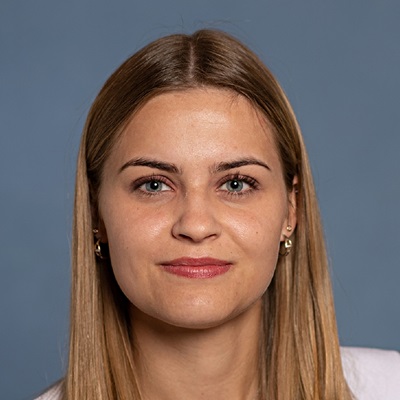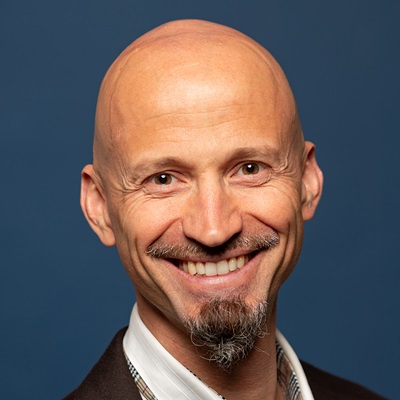A new home away from home: Completing a PhD at ARI

Daphne van der Heide, who has been with AO Research Institute Davos (ARI) for five years, is about to receive her PhD from ETH Zurich, one of Europe’s top-ranked universities. She is one of several young researchers from all over the world who are completing their PhDs at ARI while collaborating with top universities.
At first, Daphne van der Heide wasn’t excited to leave her home country, the Netherlands. “I was finishing my master’s degree in biomedical engineering at the University of Twente in Enschede and needed to complete a four-month internship. Since I couldn’t find anything in the Netherlands, I asked my supervisor for help.” Van der Heide was given a list, together with the recommendation that “the AO is always a good idea”. Within a day, her internship at ARI’s Biomedical Materials focus area was arranged, and in 2019, van der Heide first traveled to Switzerland. “Leaving felt difficult at the time, but I quickly got settled in, and I really enjoyed working with the team.” So much so that she decided to take up the offer from David Eglin, the focus area leader at the time, to start her PhD at ARI.
“The first two years were difficult because of Covid. My PhD was part of a large European research project, and we could only meet remotely for a very long time,” said van der Heide. “But later on, the collaboration and networking really picked up, and I very much enjoyed being part of such a large consortium.”

“Here at ARI, everyone knows each other, and everyone from junior to senior scientists is incredibly supportive and happy to share their knowledge—even when they’re in a different group.”
Daphne van der Heide
Matteo D’Este, who became van der Heide’s PhD supervisor after David Eglin had left to take on a professorship at Ecole des Mines de Saint Etienne in France, is proud of her achievements: “Daphne’s PhD work was part of ’cmRNAbone’, which has pioneered RNA technologies for bone regeneration. Thanks to this research we now better understand which materials can support the biological function of chemically modified RNAs, helping our body to build all main components of bone—nerves, blood vessels and mineralized tissue.”
For van der Heide, completing her PhD at a private foundation was a valuable experience: “When you do your PhD at a university, the environment can be quite competitive, and there can be a lot of pressure. Here at ARI, everyone knows each other, and everyone from junior to senior scientists is incredibly supportive and happy to share their knowledge—even when they’re in a different group.”
“ARI’s environment is indeed unique,” said Matteo D’Este. “Its location and smaller size compared to large academic campuses and departments, combined with the fact that a significant portion of the students come from abroad, implies that students tend to form strong bonds and support each other both at work and outside, creating a unique, family-like atmosphere.”

“ARI’s location and smaller size implies that students tend to form strong bonds and support each other both at work and outside, creating a unique, family-like atmosphere.”
Matteo D'Este
As for her initial fear of leaving the Netherlands, van der Heide has now comfortably settled in Switzerland and is currently looking for work that will allow her to remain in the country. “While I was one of the very few who couldn’t quite adapt to life in a small mountain community like Davos, I did grow to love Switzerland and have by now built my life here—albeit in the more urban lowlands.”
ARI publishes all open PhD positions on our website.

